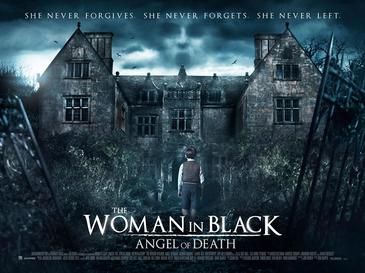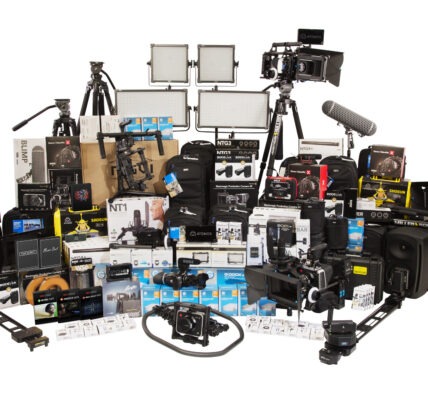You are an advocate of copyright issues. How does your work apply to filmmakers?
Our mission is to help filmmakers tell their stories their way. That phrase sums up who we are to our filmmaker clients and to the law of copyright.
As a proponent of the 165-year-old fair-use doctrine, can you explain what this is, and why it is so important to filmmakers?
Fair use is a provision of the copyright law that says it is not an infringement to use a portion of someone else’s work in a way that transforms what you took into something new and different, with a different purpose. That simple statement is hardly a full explanation of fair use, but it is a decent summary. We are a proponent of every artist knowing their rights pursuant to fair use and then—when fully informed—the filmmaker can decide to license or not license the material they want to use in their films.
Can you give us some examples of the important film copyright cases you have been involved with?
Fair use was at the centre of a case when Yoko Ono sued [one of] my client[s] for using 15 seconds of John Lennon singing “Imagine”. Other law firms had told the filmmakers that they couldn’t possibly use the music without licensing it—and that Yoko Ono would never have licensed the music for use in that film because she was so opposed to its message. We worked with the filmmaker and eventually issued an opinion that the use was a fair use. We helped the filmmaker obtain insurance to cover this use.
Yoko Ono sued. Yoko Ono lost.
The judge had no problem saying that I was correct that the use was a fair use. This was very satisfying. Our office has also worked on amicus curiae briefs in various cases important to independent filmmakers at the appellate court, federal tax court, and even the US Supreme Court. An amicus brief means you are coming in as a friend of the court, rather than on one side or the other.
You were also pivotal to the DMCA ruling made in July 2010 by the US Copyright Office. Why was this so important a decision?
Fair use doesn’t help a filmmaker much if you can’t find broadcast-quality source material. When it comes to feature films and many television shows, the only place to find such high-quality material outside the studio or network is on a DVD that is copy-protected. The DMCA says it is a crime to rip a copy-protected DVD for any reason. Our office, in conjunction with the USC IP Clinic, asked the Copyright Office for an exemption to the DMCA. After a hearing in Washington DC, several briefs, and lots of time, the Copyright Office ruled that it would not be a crime to rip a DVD to obtain material to be used pursuant to fair use or public domain in a documentary, non-commercial video, student film, or in a professor’s classroom. It’s a stunning victory. It makes a lot more material available to filmmakers.
Can you talk a little about your involvement with the new book Reclaiming Fair Use?
Well, that was very flattering. The University of Chicago Press just brought out a book tracing the groundbreaking work of Professors Pat Aufderheide and Peter Jaszi of American University. They spearheaded the development of best practices for fair use for specific user communities starting with documentary filmmakers. The book mentions other helpful academics, but only one attorney in private practice—that would be me. I am sure there could have been other attorneys mentioned, but it is humbling to have been singled out in that way with over a dozen mentions in the book. The academics are the real change-agents as they are the ones training new lawyers who will be coming along.
You work with many documentary makers, but do all filmmakers need to be concerned about copyright?
All filmmakers—all artists in every medium—need to be aware of their rights under copyright law. Copyright attaches to everything they create as soon as it is in tangible form. No registration. No magic words on the work. Just get the work into a tangible form and you own it, for the rest of your life, and then your kids and grandkids for 70 years after your death. These rights can have great emotional and economical impacts. If you are basing your work on another work or include pieces of someone else’s work in your new work, you must have done everything right in acquiring and clearing the rights.
In your experience, what are some of the most common misconceptions filmmakers have about copyright?
What an interesting question. I’m continually impressed with how sensitised filmmakers and the general public are to copyright issues. I suppose the biggest misconception is that if something is on the Internet, it has magically passed into the public domain. Not so. Copyright law hasn’t caught up with the culture of now, cheap, free, fast that is the rallying cry of many who live part of their lives in cyberspace.
How can independent filmmakers avoid being caught out on copyright issues?
Attend seminars. Read a copy of my book Clearance and Copyright (3rd edition). It covers the field pretty thoroughly. And if you get a cease-and-desist letter or a claim of any sort, consult a clearance attorney before you respond. Always try to reach a meeting of the minds before things spin out of control.
Do evolving digital technologies in filmmaking and distribution pose any threat to copyright law, and does the existing law need to evolve to meet these changes?
Copyright law will evolve to take into consideration technological changes. It always has and it always will—and at a much faster rate than previously. When the printing press was invented, it was 150 years before Queen Anne gave authors the copy-right, as it was known then. Motion pictures were around some 20 years before the work-for-hire concept came into copyright law.
The Internet is clearly playing a major role in modern filmmaking; can you explain the principle of Net Neutrality?
Net Neutrality simply means that everyone has the same right to have their material move down the Internet. Your independent film should move across the Internet at the same speed as the studio films. The studios can’t buy a favoured place in line. They can’t cut in front of you. Net Neutrality is very important to individuals and to independent filmmakers. That is why we filed a brief with the Federal Communications Commission asking that they keep the Internet fair, that is, that the FCC keep the net neutral. They ended up giving us much of what we wanted, but threw enough very large bones to the very large content owner to choke a horse. This is a drama that is still playing out in Washington, the courts, and for stakeholders across the country. Keep your eye on it.










